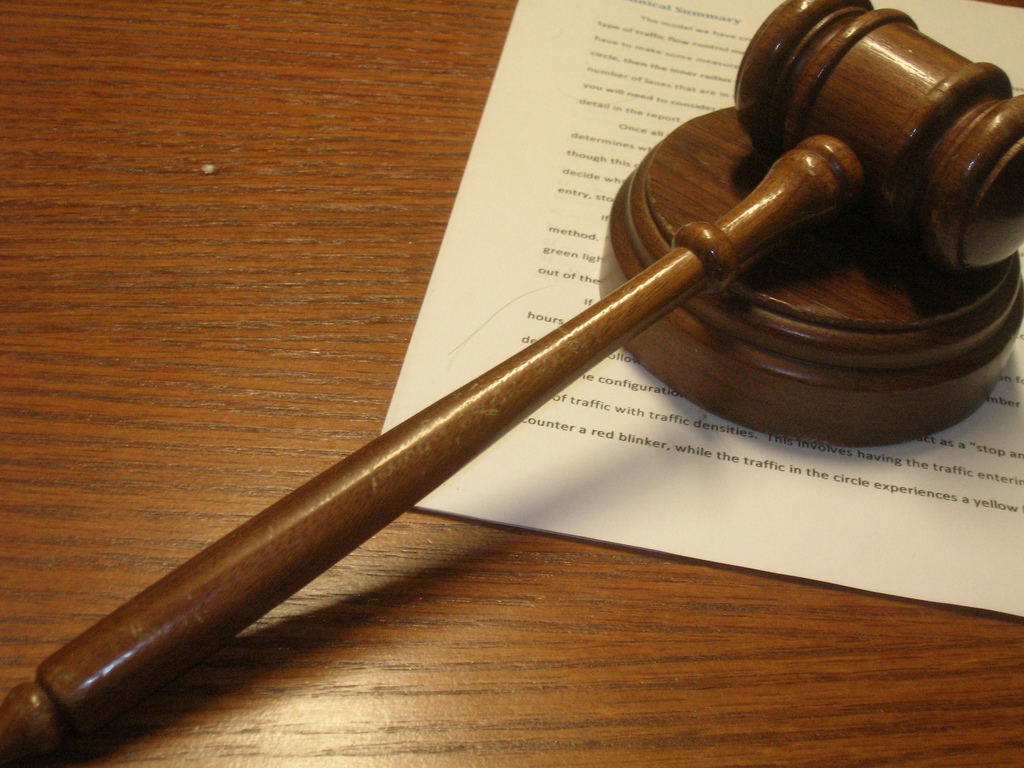
Guide to Mooting: Skeleton Arguments
October 22, 2012
Surviving the BPTC – Conferencing
October 27, 2012Property Law and Practice is all about the art of conveyancing, be it commercial or residential property. One of the good things for learning property in practice is the process of selling a property can be split into stages and in fact, many practitioners approach conveyancing in much the same way.
Top tip – if you don’t want your course mates to hate you, make sure your ‘transaction’ work is done on time!
In this post I will be looking at the first part of any transaction – pre-contract enquiries. This is the stage before you agree the contract, when you get instructions from your client and start obtaining and exchanging information with the other side. Typically, you will also draft the contract at this stage but I am going to leave this until the next property post.
Obtaining instructions
There will be an initial interview or phone conversation with the client. Obtain enough information to proceed with the transaction: price, address, other side’s details, funding details, (you may have already received some of the information from the estate agents heads of terms – check this is correct with the client).
You will also need to cover the professional conduct requirements relating to initial client care – fees and costs, confirmation of instructions, information relating to complaints, responsibility for the transaction etc. (professional conduct will be the subject of a separate post).
Here, more information is better than having to ask the client for it later, provided your questioning doesn’t take too long! No one will want to pay for your time calling up to ask if the washing machine is included.
Pre-contract enquiries – sellers
The first step for sellers following instructions is to obtain the relevant documents to send out to the buyer’s solicitors with the contract and carry out a preliminary investigation of title. These are as follows:
- title deeds and plan – for registered land, official or office copies from Land Registry, unregistered, the epitome of title and deeds
- energy Performance Certificate – an energy efficiency rating which is required for all property transactions but rarely paid any attention
- property Information Form for residential/Commercial Property Standard Enquiries for commercial.
There are other documents such as fire safety and asbestos reports that are required for commercial property.
PFI/CPSEs are tricky documents – the information provided on the forms is relied upon by the Buyers and so constitute warranties within the contract. If information provided is false or misleading the contract could be voided or the Seller sued (and you sued for good measure!). As a result, many of the questions are answered with a standard response to protect the Seller, such as ‘Not so far as the Seller is aware’ or ‘the Buyer is to rely on its own enquiries’.
In certain situations, the Seller will be asked to provide guarantees or other documents: for example, if there has been recent building work, new windows or boilers or if it is a new build house. The Buyer’s solicitor will ask you for these if you don’t include them, so it is easier to send them now. If your client has lost them, you may have to arrange an indemnity insurance policy (low premium insurance policy that covers the risk of the missing guarantee). Wait until the Buyer’s solicitor has asked for it before obtaining insurance – they might miss it and save your client some money.
If the Seller is leaving anything at the property you will need to list these and decide the price – the Agent may have already done this for you.
The preliminary investigation of title is really to check the Seller owns and can sell the property and to think about the questions you might be asked by the Buyer, once they have examined the title documents.
Pre-contract enquiries – buyer
Once you have received the contract pack (or perhaps before, if you have enough information) you can start investigating the property title. The first thing to check is that the information provided is sufficiently up to date – anything over six months and you should consider obtaining new copies. You will also carry out a number of searches over the property:
- Local Authority Search
- Local Land Charges Search
- Water and drainage search
- Environmental search
- Chancel search.
These are a minimum and there a number of other searches you may carry out in specific circumstances e.g. in certain areas of Cornwall, you would carry out a mining search to check mining activity in the area. Most LPC text books have very useful break downs about each search and what they will and won’t tell you – tab this now, it will be useful in the exam.
The purpose of the searches and pre-contract enquiry answers is to check the property is what your clients think it is and that there are no nasty surprises. In particular, check:
- there is nothing on the title that causes concern or could affect the use of the property: rights of way, joint ownership or restrictive covenants, for example
- the property has all the services it needs – it is connected to both water and sewers and has sufficient rights of way to get the publicly maintained highway
- there are no plans in the vicinity for council redevelopment – you need to be wary of potential for compulsory purchase
- all necessary planning permission, building regulation certificates have been obtained and there are no outstanding offences
- there are no environmental concerns (in environmental law, the owner of contaminated property can be liable to pay for the clean up)
- there are no unusual or unexpected answers on the pre-contract enquiries and all guarantees etc. have been provided.
Reports on title are a bit of an art form and you won’t really appreciate this until you are in a property seat on your training contract. Think about what you would like to know if you were buying the property and what you as a solicitor have to tell your client. Make sure anything that involves taking on a risk is clearly identified to the client. If there is anything that isn’t run of the mill, get specific, written instructions on it to cover yourself later on.
Reports on title are a bit of an art form and you won’t really appreciate this until you are in a property seat on your training contract
[/one_third_last]
Funding
At this stage both Buyer’s and Seller’s solicitors will need to engage with the client’s funder – often a mortgage provider. The Seller’s solicitor will need to contact the client’s mortgage holder to obtain a provisional redemption figure – check you will have enough money to redeem it!
The Buyer’s solicitor will often act for the mortgage provider as well as their own client and will at this stage obtain instructions and the mortgage documents. This also raises some professional conduct issues around confidentiality and duty. You will need to make it clear to your client that you also have a duty to the mortgage provider and that any information relevant to the mortgage provider you will have to disclose (fraudsters beware!). In practice, especially in residential conveyancing, the clients may not realise this and will get narky if they find out you have been passing on information they thought was confidential. If you let them know at the start, you manage their expectations and will hopefully avoid a complaint.
This stage of conveyancing is all about information and questions. If you think your client might ask a particular question about the property, make sure you know the answer. The same goes if you think you may be asked! Check your client knows everything he needs to in order to make an informed decision about the transaction and, before moving on to the next step (agreeing and exchanging contracts), ensure you have done everything to cover yourself!





